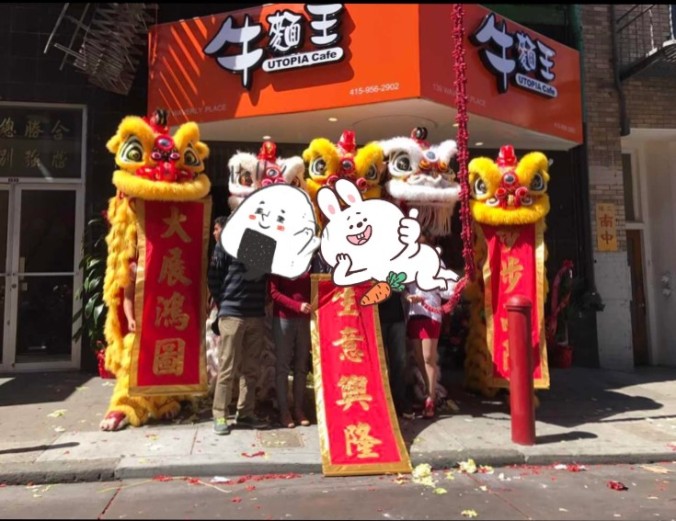
I found this picture in the message logging, that my friend sent it to me and asked if the translation is right. Then I went to do the research about this “八股文”. In classical Chinese, the word “股” means legs, but in this case, it can not be translated as legs. “八股文” was been truly translated to “Eight shares”. “Eight shares” is an imperial examination system been used by the kings of the time from Song dynasty to Qing Dynasty. It was the most complete selection of civil servants recruitment system in the ancient world. it was the way that the vast majority of Chinese nationals can enter the national decision-making center through the examination and then share the state power. In the Sui and Tang dynasties, the imperial examination was mostly focused on the article from Ming Jing and mainly to write poetry, until the Ming and Qing dynasties were officially converted into eight shares. (sourced from http://www.zwbk.org/MyLemmaShow.aspx?zh=zh-tw&lid=95339 ) After read through the articles about the “Eight Shares”, I started to realize when translation goes wrong doesn’t make any sense is not the worst thing, the thing is if the wrong translation does make somewhat sense but has different meanings, we should be careful on this problem.
In the reading “Sappho’s Hymn to Aphrodite”, the authors use different word choice to translate the same poem. The meaning of the poems was basically the same, but the words that author used changes reader feeling about the poem. In Poochigian’s translation, he wrote “I beg you, Empress, do not smite me with anguish and fever”, compare with Carson’s Translation “I beg you do not break with hard pains”. Poochigian’s translation has seemed to have more details and express the mood of fear and pleading. Which makes the sentence stronger than Carson’s Translation.
The mistake happens pretty often, as a writer, we have to be careful with the word choices, because when we translate the words in different languages, it might make no sense to the reader. as a reader, we also have to focus more on author’s word choice, because sometimes they might use the words in purpose.
Team Zeus, Yao
Citation:
information of “eight shares”, sourced from http://www.zwbk.org/MyLemmaShow.aspx?zh=zh-tw&lid=95339
 Translating from different languages can be very difficult. Even after studying French for years, I still make small mistakes that can take on a whole new meaning. While practicing on the app duolingo, I translated this whole sentence incorrectly because I misread the “e” in cheveux as an “a”. This changed the word “hair” into the french word for horses. The word for greasy and for fat is the same, “gras”, depending on its use. Learning a new language is difficult due to all the words that are spelled the same or very similar but have completely different meanings. English also has plenty of words like that, homographs. Due to all the differences within a language, getting a perfect translation with the exact original meaning is near impossible.
Translating from different languages can be very difficult. Even after studying French for years, I still make small mistakes that can take on a whole new meaning. While practicing on the app duolingo, I translated this whole sentence incorrectly because I misread the “e” in cheveux as an “a”. This changed the word “hair” into the french word for horses. The word for greasy and for fat is the same, “gras”, depending on its use. Learning a new language is difficult due to all the words that are spelled the same or very similar but have completely different meanings. English also has plenty of words like that, homographs. Due to all the differences within a language, getting a perfect translation with the exact original meaning is near impossible. Languages are a way of expressing different cultures, ideas, and cultural identity. Many things we say in English can have a completely different in Chinese. In the picture I have above, is a restaurant sign owned by my relatives in California. I was curious about what the Chinese translation meant, so I asked my grandma what it meant and to my disbelief, it was totally different in Chinese. In English, it would be Utopia Cafe. However, in Chinese, it literally translates to King Cow Noodles. Although according to my Mom’s explanation, there’s a deeper meaning to it in Chinese. She explained how some of the characters can be used to describe “The Best” or “Number One”. In a way, it means “the best” or it’s the “number one” noodle house or restaurant. Differences in translations exist because people perceive words depending on the languages they speak.
Languages are a way of expressing different cultures, ideas, and cultural identity. Many things we say in English can have a completely different in Chinese. In the picture I have above, is a restaurant sign owned by my relatives in California. I was curious about what the Chinese translation meant, so I asked my grandma what it meant and to my disbelief, it was totally different in Chinese. In English, it would be Utopia Cafe. However, in Chinese, it literally translates to King Cow Noodles. Although according to my Mom’s explanation, there’s a deeper meaning to it in Chinese. She explained how some of the characters can be used to describe “The Best” or “Number One”. In a way, it means “the best” or it’s the “number one” noodle house or restaurant. Differences in translations exist because people perceive words depending on the languages they speak.


![@_DUQ_]QO~SQ@){1E$`9 @_DUQ_]QO~SQ@){1E$`9](https://i0.wp.com/pastinpresenttense.wordpress.com/wp-content/uploads/2017/09/duq_qosq9b1e9.png?w=209&h=117&ssl=1)





 The difference in translation mean a lot to the readers as it carries different meanings. The hoe of words during interpretation is vital, as it must seek to retain the meaning of a text.
The difference in translation mean a lot to the readers as it carries different meanings. The hoe of words during interpretation is vital, as it must seek to retain the meaning of a text.


